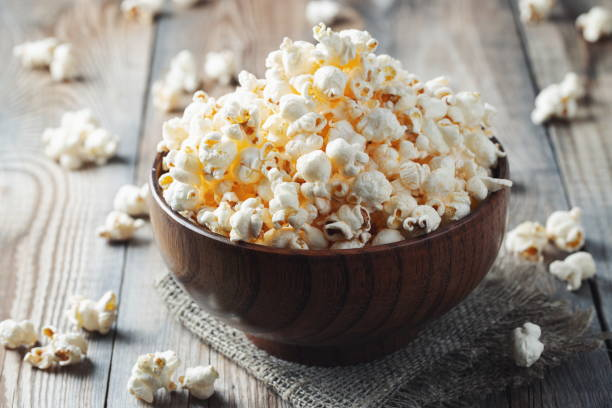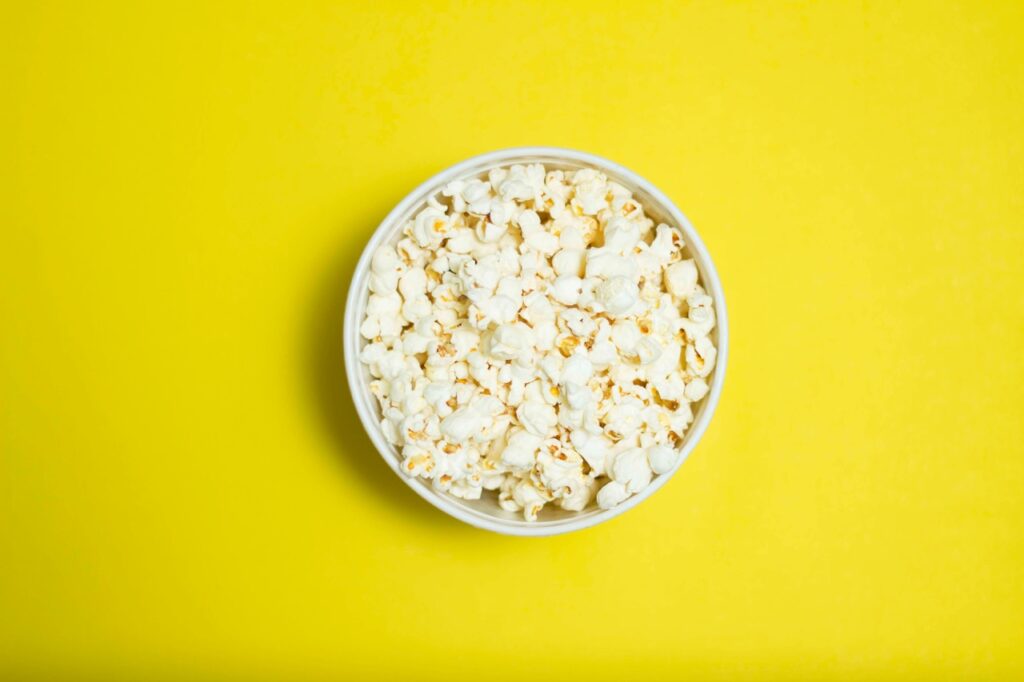What to Eat and Drink
Why Is Popcorn A Superfood
Let’s face it: popcorn is a popular snack that adds enjoyment to movie evenings and carnival adventures. But did you know that in addition to being delicious, popcorn is a superfood? Yes, you read it correctly! This simple snack is more nutritious than you might expect. Popcorn has a unique place in the world of healthy snacking since it is high in nutritional fiber, whole grain deliciousness, and antioxidants.
Nutritional Benefits of Popcorn
Popcorn is frequently considered as a mere luxury, but it is time to recognize its tremendous nutritional value which makes it a superfood. One of the most noticeable advantages of popcorn is its high fiber content. Fiber is necessary for a healthy digestive tract and consistent bowel motions. A single serving of popcorn contains up to 4 grams of fiber, which is approximately 16% of the necessary daily consumption.
In addition to fiber, popcorn is a whole grain snack. Whole grains are high in nutrients and can help lessen the risk of heart disease, diabetes, and certain types of cancer. Unlike refined grains, which have lost their bran and germ, whole grains retain all of the grain’s components, including the fiber-rich bran and nutrient-dense germ.
Additionally, popcorn is a good source of antioxidants. Antioxidants are substances that help protect our cells from the damage produced by dangerous molecules known as free radicals. These chemicals may contribute to chronic diseases and aging. Popcorn includes polyphenols, a class of antioxidants found in fruits and vegetables. Polyphenols have been proven in studies to have anti-inflammatory and cancer-preventing properties.

Popcorn and Weight Management
If you’re watching your weight, popcorn can be an excellent addition to your diet aside from it being a superfood due to its benefits. Unlike other processed snacks, popcorn contains no added sugars or bad fats, making it a guilt-free choice. It’s low in calories and can fulfill your needs without jeopardizing your fitness goals. Furthermore, the crispy texture of popcorn can be highly pleasant, keeping you feeling fuller for longer.
According to research, including whole grains in your diet can aid with weight management. Popcorn contains fiber, which can promote satiety and lower overall calorie intake. Choosing popcorn as a snack allows you to eat a greater portion while ingesting fewer calories than other foods.
Popcorn as a Source of Fiber
Fiber is a vital component for a healthy digestive tract. It bulks up the stool, making it easier to transit through the intestines and reducing constipation. Popcorn is an excellent source of dietary fiber, with each serving providing a large quantity.
Fiber not only promotes regular bowel motions, but it also helps balance blood sugar and cholesterol levels. It inhibits sugar absorption into the bloodstream, which prevents blood sugar rises. This can be especially advantageous for people who already have diabetes or are at risk of getting it.

Antioxidant Properties of Popcorn
Antioxidants are chemicals that protect our cells from free radical harm. Free radicals are unstable chemicals that can induce oxidative stress, resulting in chronic diseases and aging. Popcorn includes several antioxidants, including polyphenols.
Polyphenols are a type of antioxidant that has been demonstrated to have anti-inflammatory and anticancer properties. They can assist to reduce inflammation in the body and counteract oxidative stress. Consuming polyphenol-rich foods, such as popcorn, may help reduce the risk of chronic diseases like heart disease and certain types of cancers.
Popcorn and Digestive Health
Maintaining a healthy digestive tract is critical to overall well-being. Popcorn’s fiber content helps improve digestive health by encouraging regular bowel movements and reducing constipation. It increases the volume of the stool, making it simpler to transit through the intestines.
Furthermore, popcorn contains a modest amount of resistant starch. Resistant starch is a form of carbohydrate that escapes digestion in the small intestine and enters the large intestine intact. Once in the large intestine, it functions as a prebiotic, supplying food to healthy gut bacteria. A healthy gut flora is essential for optimal digestion and immunological function.

Popcorn as a Snack Option for Various Dietary Needs
Whether you’re on a vegan, gluten-free, or other dietary plan, popcorn may be a versatile and pleasant snack. Most plain popcorn is inherently vegan and gluten-free, making it appropriate for a variety of dietary needs. However, it is always prudent to check the package or ingredient list for any potential allergens or additions.
There are numerous possibilities for flavoring your popcorn. To make a delicious and customizable snack, try different flavors like nutritional yeast, cinnamon, or chili powder. Simply limit the amount of salt, butter, or oil used, as excessive consumption of these items can negate some of the nutritional benefits of popcorn.
How to Choose Healthy Popcorn Options
While popcorn is a nutritious snack, how it is made can significantly impact its superfood status. To make the healthiest choice, choose air-popped popcorn or make your own using an air popper. This approach avoids the need for additional oils or butter.
If you prefer microwave popcorn, choose products with natural or minimal ingredients. Avoid those with artificial flavors, colors, or high levels of salt and harmful fats. It’s also a good idea to ensure that the packaging is free of hazardous compounds such as perfluorooctanoic acid (PFOA), which is typically found in microwave popcorn bags.

Creative Ways to Enjoy Popcorn
While plain popcorn is a traditional snack, there are numerous inventive methods to boost its flavor and nutritional value. Here are some ideas that will inspire you:
- Sweet and Salty: For a delicious flavor combination, sprinkle popcorn with sea salt and drizzle with melted dark chocolate.
- Spicy Popcorn: Season your popcorn with paprika, cayenne pepper, and garlic powder.
- Popcorn Trail Mix: Combine popcorn, almonds, dried fruits, and seeds to make a healthful and filling snack on the go.
- Popcorn Granola: Make homemade granola by combining popcorn with oats, almonds, honey, and your favorite dried fruits.
- Popcorn Energy Balls: Combine popcorn, dates, nut butter, and a touch of honey to make energy balls that are ideal for a quick and healthy snack.
Conclusion
Popcorn is not just a delicious and satisfying snack for me; it’s also a superfood packed with nutritional benefits. Its high fiber content, antioxidant properties, and potential digestive health benefits make it a valuable addition to my balanced diet.
When choosing popcorn, I opt for air-popped or homemade versions to avoid unnecessary additives and unhealthy fats. I get creative with flavors and enjoy popcorn in various ways to keep my snacking experience exciting.
So, the next time I’m craving a snack, I reach for a bowl of popcorn and savor the goodness it offers. I remind myself that I’m choosing a superfood that’s both scrumptious and good for me.


